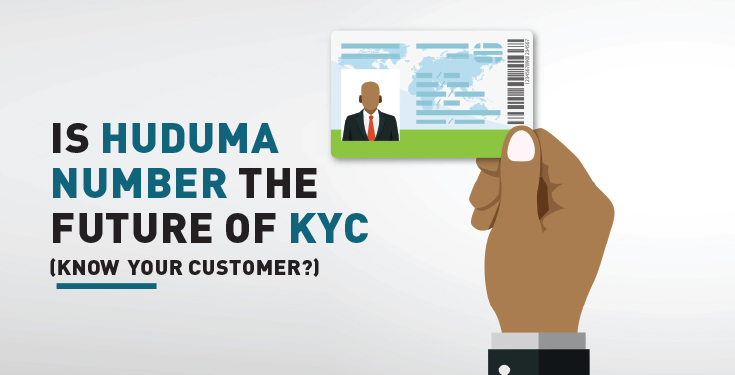Is Huduma Number the future of KYC

During the Mashujaa Day celebrations that took place at Kisii Stadium, President Uhuru Kenya revealed the new Huduma Cards which will replace the existing national identity cards. On the same breathe he appealed to MPs to fast-track the vetting of the appointed data commissioner. Last week, President Kenyatta nominated Immaculate Kassait, the Independent Electoral and Boundaries Commission director of voter registration and electoral operations to become the country’s first data commissioner
A report by an inter-ministerial committee chaired by Interior Cabinet Secretary Fred Matiang’i stated that the completion of the process depends on observing a High Court advisory on the official’s appointment.
This appointment would conclude the exercise that started two years ago following the launch of a national security project that targeted to integrate citizens’ data into a single card.
On Wednesday, during the unveiling of the Central Bank branch in Kisii County, the President said that the rollout of Huduma Namba will change operations in the banking industry. He said that the new system will make it easier for banks to capture details of clients’ increasing confidence in dealing with them.
“The details will reduce traditional channels banks have been using to know their customers, this will help in cutting the cost of doing business,” he added.
In Kenya, KYC laws exist in the financial and technology sector. The Kenya Information and Communications Act, 1998 has a provision that requires telecommunications operators to register SIM-Cards. The law states that a telecommunications operator should obtain from a natural person their full name, identity card number, date of birth, gender, physical and postal address before selling them a SIM-card. The Kenya Information and Communications (Registration of SlM-cards) Regulations of 2015 add more requirements to the ones in the Act. The Regulations require one to give the telecommunications operator an original and a copy of the national identity card, service card, passport or alien card. The Guidelines for Registration of SIM-Cards, 2019 provided for the validation of Identification Documents (IDs) by telecommunications operators and agents using several government databases.
For players in the financial sector, the Proceeds of Crime and Anti-Money Laundering Act of 2009 applies to them and it states that a reporting institution should take measures to satisfy itself as to the true identity of any individual seeking to enter into a business relationship with it or to carry out a transaction or series of transactions with it. They should do this by requiring the individual to produce an official record reasonably capable of establishing the true identity of the individual seeking to enter into a business relationship with them. This can be by requiring the individual to produce their official birth certificate, national identity card, a driver’s licence or passport. The Proceeds of Crime and Anti-Money Laundering Regulations of 2013 contain a Regulation on information on natural persons which lists additional measures that may be used to identify and verify the identity of the customer.
While being criticized as being too intrusive and exclusionary, the government hopes to reduce mass data collection by all players who need personal data for KYC. With Huduma Number, the data controller and processors will not need to manually collect customer data as they currently since they will be able to verify identity through the Huduma Number “single source of truth” just like it is currently being done with the IPRS.
The Data Protection Act requires the Data Commissioner to create a data sharing code for government departments, something which is overdue especially now that Huduma Cards will start being used soon.

